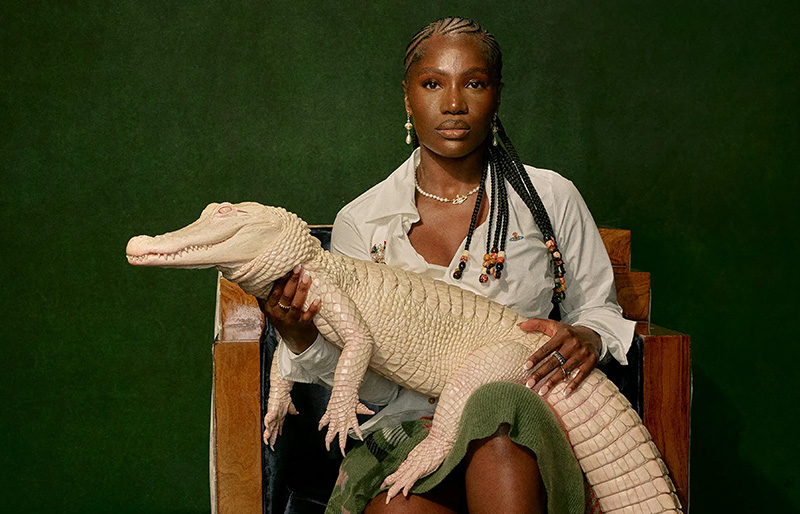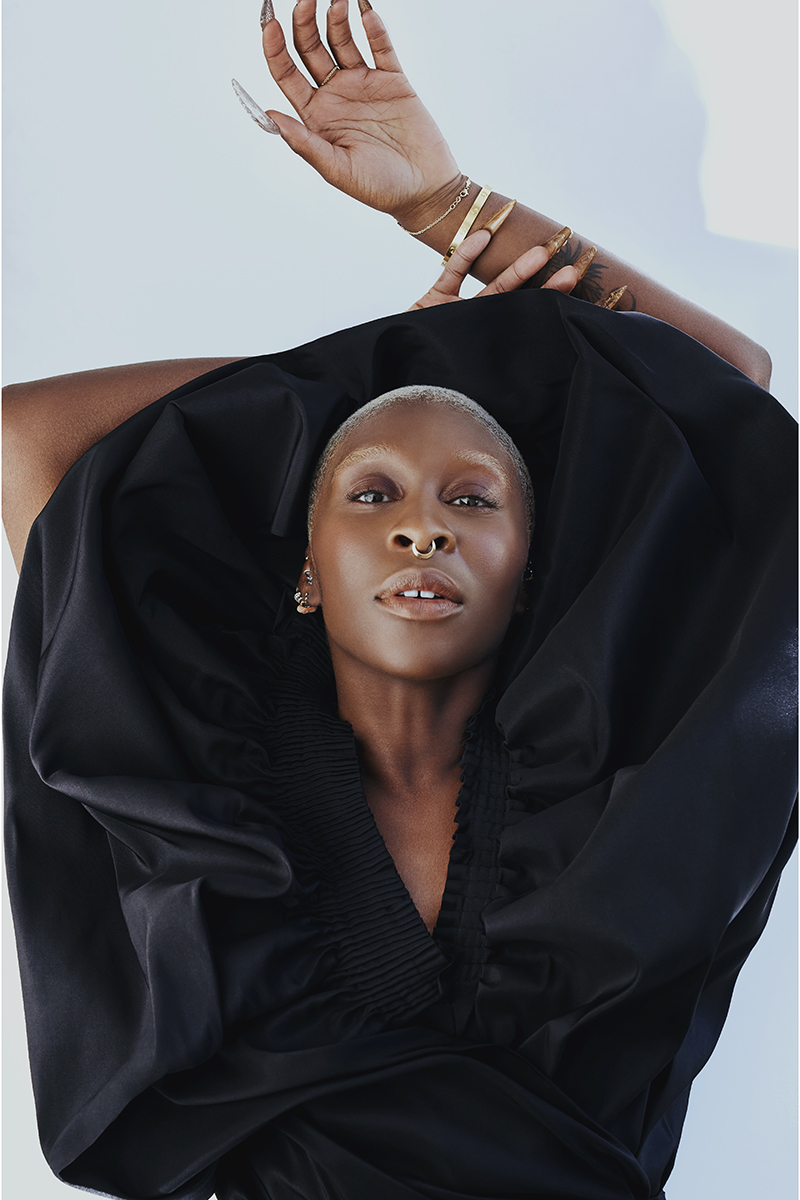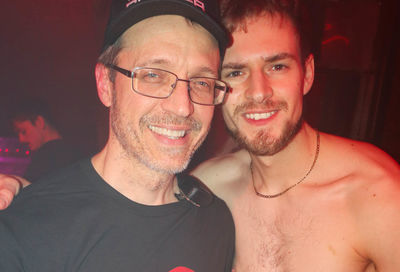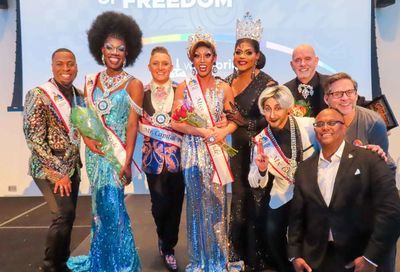Home Sweet Home
Bubbles be damned! Gay and lesbian Washingtonians are living the 'American Dream'
In the Washington, D.C., metropolitan area, talk often turns to real estate. The same could be said for most of the county, if not the world. The question of ”land” and who owns it has been taken very seriously by the species since it began. An escalating bid for the corner unit in the luxury high-rise is just a stone’s throw from humanity’s ancestors fighting each other for ownership of a watering hole or a hunting ground. Real estate is both shelter and a stake in the future. It can be leveraged, and it can be a liability. The capital’s roller coaster of rising and falling fortunes, from war boom to riots, illustrates this as well as — if not better than — any other American city.
Moving from the macro to the micro, each residential transaction involves people. There are buyers and sellers and agents and brokers. There are neighbors and home inspectors. All sorts of people are involved in the equation of residential real estate. And in Washington, plenty of these people hail from the GLBT community, with its attendant reputations for gentrification, gay ghettos and taste.

But while this local GLBT community may be talking about real estate, what are they saying? Who can make sense of what’s going on today?
Melinda Flumer’s MSN headline reads, ”Landlord’s Market Might Be Over.” Over at the Washington Post, Kenneth R. Harney is penning an article titled ”The Tide Is Turning,” examining an up-tick in the housing market. And David Lee Smith of The Motley Fool financial Web site is asking — as recently as Feb. 20 — ”Is the Roof Falling on Housing?”
With all the speculation, the 19th century British investing axiom, ”as safe as houses,” rather than stashing one’s cash in the railway industry, is no longer taken for granted. Nothing is.
While every market comes with its share of uncertainty, we offer some local GLBT insights that may help make a bit more sense of real estate in D.C. and its suburbs.
‘G’ for Gay or Gentrification?
MERRIAM-WEBSTER DEFINES ”gentrification” as ”the process of renewal and rebuilding accompanying the influx of middle-class or affluent people into deteriorating areas that often displaces earlier, usually poorer residents.” Anyone using the Columbia Heights Metro in recent years may remember the longstanding bit of nearby graffiti reading, ”Fuck Gentrification.”
With the struggle for GLBT equality being a social-justice issue, conventional wisdom would indicate that the GLBT community may be more attuned than the community as a whole to other social-justice issues — like gentrification. Whether the case or not, the GLBT community certainly has a reputation for gentrification. Some gays with an activist streak do, however, take issue with the gentrification’s negative connotations.
Richard Rogers, for example, a long-time social-justice activist, welcomes the new neighbors to his stretch of the 400 block of M Street NW, where he has lived as a renter since 1989.
”With gentrification, all the neighbors have changed,” he says, offering, with a seeming hint of irony, his recollection of what the neighborhood was like in years past. ”I can remember the good better than the bad. You didn’t need a television. It was the midst of the crack epidemic and there was so much going on out on the street.
”Another good thing was that there were a lot of artists around because rents were very cheap. Today, it’s very sanitized and rents are $1,200 a month. The liquor store sells gourmet wine. I’m one of the only renters left.”
Rogers’s isn’t about to make a plea for returning things to the way they were. He’s more likely to head the welcome wagon.
”[The neighborhood] has gotten better in a different way. It’s friendlier. It’s safer. We have effective policing in the neighborhood. Now that the community is being developed and apartments are coming online, I welcome the new neighbors. It’s better than living in an area of intentional neglect.
”I’ve embraced gentrification,” he continues, ”because the status quo is not acceptable. To have better services, you have to have more taxes. In the capital of the United States, it’s a little too late to change that system. I’m not fearful about tomorrow. I welcome the new people. I’m sorry that some of the other people had to sell or move out, but there are a tremendous number of social programs going on, so there is a safety net. The [new residents] always feel guilty for some reason, but I don’t know why.”
According to the D.C. Housing Authority, more than 10,300 families receive some type of housing assistance in the district, often though the Housing Choice Voucher Program (HCVP), formerly known as Section 8, which helps low-income residents pay rent.
Openly gay ANC 2C Commissioner Alexander Padro is very familiar with the program, claiming that his Shaw neighborhood has the highest concentration of HCVP tenants in Ward 2, making gentrification less of an issue.
”People’s fear about gentrification is the displacement of longtime residents,” says Padro, who has lived with his partner on the 1500 block of Eighth Street NW for a decade. ”In this neighborhood, the vast majority of long-term residents live in [HCVP] housing that has been protected. The only folks forced out have been families who, years ago, should have bought their homes — and could have — but didn’t, and individuals who lived in rooming houses. When the owners of those rooming houses realized someone was interested in buying the houses, the tenants had no protections. And when no one was interested in buying [in Shaw], the churches did. The churches have big stock in neighborhood properties.
”There is a perception on the part of some folks that if you have new people coming into a neighborhood, they will somehow take it away from the previous residents, that the people who have stuck it out through the bad times will be swept away,” continues Padro, offering Georgetown as a case in point. ”Georgetown had a significant African-American population, but there was a point in the early 20th century when that started shifting. I don’t know if they were forced out, but there is a book called Black Georgetown Remembered [by Kyle K. Williams], because there’s not that much black Georgetown left…. It would’ve happened here [in Shaw], but we have the largest concentration of [HCVP] housing in the ward.”
Though Rogers and Padro are both social activists aware of the possible dangers of gentrification, their real estate similarities end there. While Rogers says he hopes to continue renting his M Street home indefinitely, the druthers of Padro’s landlord pushed him and his partner, Pleasant Mann, into home ownership — somewhat reluctantly.
Taking the Plunge
Alexander Padro and Pleasant Mann were renters, and that was fine by them. Even once they began seeing quite a bit of one another and cohabitation became imminent, they did not consider buying a home together. Instead, it was simply time to rent a bigger place.
”We certainly weren’t going to fit into an apartment,” says Padro, thinking of his accumulated possessions in his Montgomery Village apartment in Maryland being combined with Mann’s, a two-decade resident of Shaw at the time. The couple responded to a rental ad for the house they live in today. ”It seemed huge. It looked like it would accommodate all the worldly goods we were going to stuff into it. We drew up the paperwork and moved in the end of September 1997.”
It was not long thereafter, the landlord decided it was time to sell. Padro says he and Mann were anxious about taking on their row house as owners.
”We were thinking, ‘Oh, jeez, do we really want to buy a house? It seemed so onerous. But we didn’t want to go through the hassle of moving again. I’d only moved three times in my entire life.”
Come November 1998, the couple’s monthly housing payment no longer went to a landlord, but toward their mortgage. The deed was done, with the first bout of buyers’ remorse a month away. Padro says they awoke New Year’s Day 1999 to find their block on local TV news.
”There had been a drug-related, double homicide a few doors down. We thought, ‘Oh, God, what have we done? A couple of months later, we got our first tax assessment and it indicated a decrease in value. We were starting to wring our hands and wonder what we had gotten ourselves into. We were worried it was the worst investment ever.”
Erica Gloger may not have struggled with the same buyer’s remorse as Mann and Padro following her own June 2006 dive into ownership, but that’s not to say she didn’t suffer the same, if not possibly more, anxiety before the purchase. As a D.C. area native, Gloger says she rented on the way-gay strip of 17th Street NW for a pittance compared to her Manhattan rent during her law-school days. Following law school, she was back in the area working as an estate-planning attorney in Bethesda, and her thoughts turned to home buying.
”I looked twice seriously, first in September 2005 and then in May 2006,” Gloger says of her house-hunting expeditions. She had a one-bedroom unit for about $350,000 in mind.
”The first time I looked, things looked shabby. We were still in the ‘boom.’ It was like, ‘Wait a minute — this is all crap,”’ she recalls. Less than a year later, the atmosphere had noticeably changed in her favor. ”In May 2006, I saw so many nicer [homes].”
Her initial foray into the market also made her second run much easier. ”I would recommend doing a practice run,” she advises first-time homebuyers. ”I got to know the buildings the first time around, and knew to avoid ones I didn’t like the second time…. I also got to be familiar with the D.C. property-tax records. You type in an address and out pops the people who live there, when they moved in, if people own more than one unit [in a condominium building]. You can also see how much people paid. It’s a little scary, actually.”
Gloger says her lesbian real-estate agent’s eye for design also complemented her own preference for numbers and details, and today she’s the proud owner of a one-bedroom unit in the heart of the Dupont Circle neighborhood.
”The funny thing is, I was looking at this building and really liked it,” says Gloger, explaining that a tax search revealed that a friend already lived in the building. ”She was on the condo board and told me everything about the building. If you’re looking to buy in a particular building, talk to the front-desk person, if there is one, or to the condo board. You can ask things. There might be things you’re willing to live with, or things that trouble you. Maybe one side of the building is warm and one is cold because of the central heat. It might be loud, but I like urban loud. I want open businesses and lights on when I’m walking home, even if it’s just a bar on a corner being open late…. Safety is important to me.”
While a close friend, who rents, kept arguing against the purchase on the grounds that the housing market was likely to continue spiraling downward, Gloger was not deterred. She has no regrets about buying.
”[The local real-estate market] isn’t what it used to be, but things are starting to go back up,” Gloger observes. ”I bought my place and continued to look at the real-estate section of the paper. Things kept continuing to go down, but by the end of December [2006], things were back up again. The other interesting thing about real estate is: Where else are you going to put your money and know you’re doing the right thing? You’re not paying tax on the investment, essentially. I haven’t done my taxes yet for this year to see how [owning] is going to benefit me, but I think I’m going to like it. It was a wise move.”
Similarly, says Padro, he and Mann have no regrets about home ownership. Fast-forward from the 1999 New Year’s Day double-homicide to 2003, instructs Padro: ”The average property-tax [assessment] in our neighborhood had gone up fourfold. All of a sudden, we had a house worth four-times what we paid for it, at least according to the assessment. Suddenly, it was the best investment we’d ever made. But when people say, ‘You must feel so excited about how much your house has appreciated,’ it’s not a big deal to us. It’s only a great asset if you’re ready to cash it in. We’ve put in blood, sweat and tears to make it a better neighborhood for everyone. We’re not ready to cash it in.”
Gloger also talks about a comforting sense of permanence that feels with owning rather than renting, even if she admits to some difficulty in grasping the fact that, for the first time in her life, she can do nearly whatever she likes to her home, from painting the walls to remodeling her kitchen.
Francki DiFrancesco, who has been working as a mortgage broker and lender for the past 15 years (though she may be better recognized in the GLBT community as a former bar manager of the long-gone gay bar Trumpets) says Gloger and Padro share stories she hopes are universal.
”Everyone deserves a home, good credit or bad credit,” she insists. ”There is no debate. When you own, even if the property is depreciating, you have a huge tax write-off. As corny as it sounds, it truly is the ‘American dream.’ You want to own real estate in this country.”
Real Estate for Fun and Profit
SEVERAL GAY LOCALS have taken the notion of the ”American dream” and run with it — far. The community may recognize Mike Watson as one of the owners of the recently opened Be Bar on Ninth Street NW, but he’s been orchestrating transformations in D.C. homes for nearly a decade.
”I was 22 when I bought my first place, a condo, right when I moved to D.C. after college,” recalls Watson of the property he bought on foreclosure near Union Station, setting him on a path of residential redevelopment — or ”flipping,” some might say.
”It was an amazing loft condo I bought for $83,000. It didn’t need to renovated, it needed to be ‘fagged out,”’ he jokes, explaining that the loft required cosmetic updates rather than a structural overhaul. ”About a year and a half later, I sold it for a ridiculous amount of money.”
Watson says he didn’t initially buy that condo with a quick sale in mind. But the profit factor couldn’t be ignored.
Gerry Coates heard the same siren call, though he recalls a time when he did not think the D.C. market was ripe for investment.
”I’ve gone full circle,” Coates explains, going back to his start in the same Shaw neighborhood where he lives today. ”In 1992, I bought a house on the 1800 block of Sixth Street NW.” Coates did not care for D.C. under Marion Barry’s second term as mayor and moved to Maryland for five years in the ’90s. Anthony Williams’s win as Barry successor lured him back.
”I love the changes. I thought Williams was doing a wonderful job. Some of the services that had slipped were coming back — especially rat abatement — and I saw it as an opportunity to develop. I wanted to come back to Shaw. I thought there was a lot of opportunity to invest there.”
Coates estimates that during this career of gutting, remodeling, redesigning, decorating — or any combination thereof — he’s invested in about 40 properties. Today, he mentions a house on Sixth Street NW, a condo on Seventh Street NW and a condo on 11th Street NW among his holdings.
”They’re a couple of long-term investments I have,” he says, adding that he really enjoys remaking a property from head to toe. ”I like having all new systems, like plumbing and electricity, and checking all the joists.”
That’s the sort of project local real-estate agent Mark Rutstein and his partner have taken on. Rutstein has been interested in improving properties as investments since he entered the real-estate field, following the advice of one of his regulars he met while tending bar at JR.’s in 2000 and 2001.
”We gutted and are in the process of renovating a Victorian home in Dupont,” Rutstein says. ”We went in and there was no original detail, so we’re gutting the entire thing. It’s more than $350,000 in renovations. I went out and searched for the cheapest house I could find in Dupont. It was two bedrooms upstairs, a studio apartment…. It didn’t make sense, so I’m opening the whole thing up and looking at resale. Any project I get into, I always look at what resale will bring. We have bought and sold a few properties to get where we are.”
Brandon Green, who works as both a broker and a real-estate agent, has also bought properties, but his investment style is to hold onto them. Aside from the first investment property he bought — at the prompting of some late-night infomercials, he admits with a laugh — he holds on to his properties.
”The only property I flipped was that first one,” he says. ”I stopped selling my own properties a while ago. When you sell, you lose appreciation.” Today, Green owns a handful of local residences. And he co-owns a bed-and-breakfast inn in Maryland.
Regardless of how these gay entrepreneurs play their cards, they all agree that the D.C. area housing market still bears fruit, even if the days of effortless 20-percent returns in a year or two may not be back around for some time, if ever.
”You have to be smart how you invest,” says Watson. ”I was definitely fortunate in that I entered the market before you saw the explosion. That has definitely been a benefit, but that’s not to say people shouldn’t enter it today. I still believe that D.C. is undervalued, compared to New York or Boston or San Francisco. It’s the center of democracy for the entire world.”
The investment principles are the same, whether a buyer sets his or her goals high or low, says Coates. ”Start off small — buy a condo in Greenbelt,” he advises first-time buyers. ”Buy what you can afford and keep moving up. You take the money you’ve earned to the next property. There’s nothing you’ll be ‘stuck with.’… You may have to wait for 5 percent return, but anyone should be able to get that. You get no return on renting. If you’re going to be somewhere for two years, buy. But assess the market and don’t overpay…. If you just break even, you’re getting a tax write-off. It’s so hard to lose when you purchase, versus renting.”
Go East — and North and South
A CALM ASSESSMENT of the market, with an eye toward first-time buyers especially, is offered by Joe O’Hara, a gay real-estate agent based in McLean. O’Hara says he actually prefers today’s market rather then the hectic extremes that marked the heady late ’90s and early 2000s.
”When I started in real estate, it was most definitely a sellers’ market, with fierce competition for the relatively few quality properties available,” he says, with no love lost. ”Now we’re in a balanced market. The nice thing is buyers now have more time for due diligence, and sellers have to prepare their homes in a quality manner — they have to do their part. It’s a breath of fresh air for everyone.”
DiFrancesco is looking at the market from the same perch. ”The marketplace has taken a really interesting turn,” she begins. ”All we’d seen was a appreciation. Now what we’re seeing is a normal cycle — 10 offers on a property is not a normal real-estate market. I don’t think a ‘bubble’ is bursting. What you’re seeing is just normal. You have to have supply and demand. What we had before was no supply. First-time buyers couldn’t buy properties; someone who already owned would come in and escalate the offer. But now, sellers are willing to negotiate. Now is the time for first-time home buyers.”
If this is indeed a good time for buyers — especially first-time buyers — to be looking properties, where should they be looking?
Bruce Kirsch, may not be gay, but as director of acquisitions for Metropolis Development Company, he has his eye on the sorts of stylish, urban oases many gay buyers want.
”Logan and 14th [Street NW] is as hot as it gets, especially for people who want more of an urban feel to their neighborhood,” says Kirsch, who says every neighborhood in the district is on his radar. His company has four properties gravitating outward from 14th and P Streets NW, with a fifth at 14th and V Streets NW. ”We’re always looking for land that’s a good value, and often that will be on the edges of a development zone…. We’re very focused and committed to 14th Street. We think it’s going to be as hip as Georgetown.”
Bill Hounshell, who last month opened a new office space for his Hounshell Real Estate firm in the same 14th and P neighborhood, has been working in real estate since 1984. And he agrees that 14th Street is hot. ”With the revitalization of 14th Street, there are a lot of great things happening,” he says. ”U Street should be so lucky.” Hounshell also likes the ”new” Capitol Hill. And he’s not alone.
While Coates joins the chorus in pointing to the Shaw neighborhood — particularly adjacent to the Convention Center — he says any D.C.-Maryland commuter corridors are poised for development.
Rutstein says he likes what’s happening on H Street NE, behind Union Station. ”It’s going to be like what happened on U Street,” he says, pointing to the ongoing transformation of U Street NW that’s been happening since the 1990s. ”Anacostia looks good. If you have five or 10 years, you could make a good return there.”
O’Hara also has his eye on the Potomac, albeit from both sides. ”The Southwest waterfront could become very popular. It’s a shame we haven’t done much with it, though there is one nice thing: the Mandarin Oriental. It may attract more development. I really like North Arlington, Alexandria City, including Old Town, and Falls Church City. In D.C., you could put LeDroit on the list of what’s not yet of everyone’s radar.”
As a word of advice to any neighborhood that may see an influx of new gay residents, Padro would say not to worry. The rainbow real-estate wave may lift all boats.
”Having more GLBT households has helped [Shaw] progress,” he says. ”Gay and lesbian ‘gentrifiers’ have become very involved, want to add beauty, want to make sure they can walk to retail and restaurants…. New homeowners tend to lavish more love on their homes, redoing front yards with new plantings, keeping paint up. I don’t want to use that as a stereotype, but it’s not an uncommon dynamic.”
Support Metro Weekly’s Journalism
These are challenging times for news organizations. And yet it’s crucial we stay active and provide vital resources and information to both our local readers and the world. So won’t you please take a moment and consider supporting Metro Weekly with a membership? For as little as $5 a month, you can help ensure Metro Weekly magazine and MetroWeekly.com remain free, viable resources as we provide the best, most diverse, culturally-resonant LGBTQ coverage in both the D.C. region and around the world. Memberships come with exclusive perks and discounts, your own personal digital delivery of each week’s magazine (and an archive), access to our Member's Lounge when it launches this fall, and exclusive members-only items like Metro Weekly Membership Mugs and Tote Bags! Check out all our membership levels here and please join us today!





















